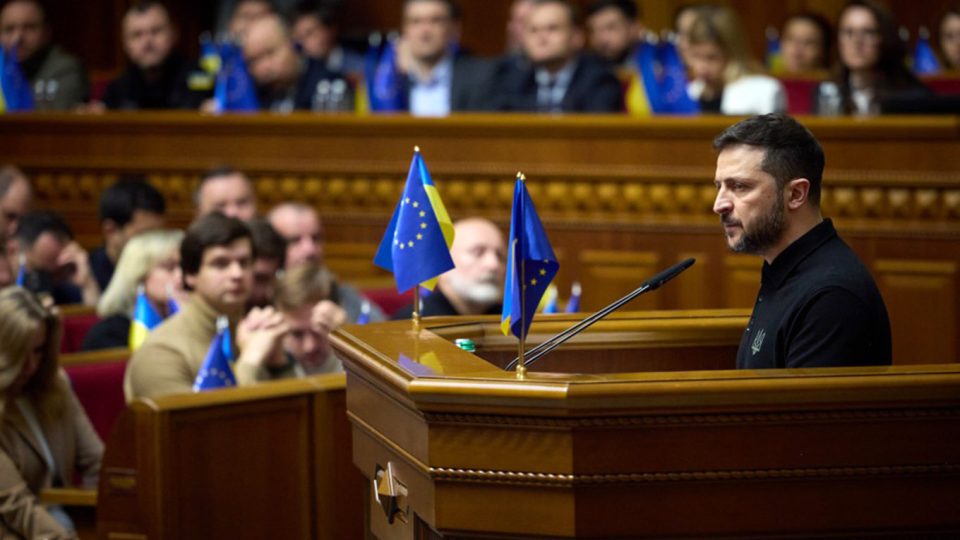Ukrainian President Volodymyr Zelensky has introduced a long-anticipated “victory plan” during a presentation to parliament, aimed at strengthening the nation’s position to ultimately end the war with Russia. This initiative comes at a critical time as concerns regarding the ongoing conflict and its repercussions continue to mount.
Zelensky’s plan outlines key strategies, including a formal invitation for Ukraine to join NATO, lifting restrictions on long-range strikes using Western-supplied weapons against Russia, and a commitment to maintain Ukrainian territory and sovereignty without compromise. Additionally, he insists on continuing military operations in Russia’s western Kursk region.
The president highlighted the necessity of this approach while reflecting on the troubling alliance emerging between Russia and regimes like North Korea. He stated, “We are facing a crucial moment, and we must respond decisively to threats against our sovereignty.”
The recent surge in military aggression from Moscow has coincided with significant turmoil in Ukraine, with rising casualties and increasing public fatigue becoming apparent. Even as humanitarian and military needs evolve, Zelensky remains firm in his position that negotiation with Russia should not come at the expense of territorial integrity.
In addressing the growing number of challenges, Zelensky underscored the importance of international support, urging Western allies to bolster aid. “We need to apply pressure on Russia so they understand that this war will yield them nothing,” he stated.
The presentation of his plan follows the troubling backdrop of increased violence and hardship for many citizens, leading some members of parliament to express their concerns about the mounting toll of war on national morale.
Zelensky acknowledged these issues during his speech, stating, “Victory has become an uncomfortable word for some, and achieving it is far from easy.” Nevertheless, he remained resolute, asserting that the conflict and sacrifices of the Ukrainian people should not lead to concessions.
His remarks were echoed by Oleksandr Merezhko, a member of Zelensky’s Servant of the People party, who emphasized that any discussions of territory would be unacceptable. Merezhko maintains that the government’s extensive strategies could proceed without accommodating Russian interests.
Meanwhile, NATO’s new Secretary General, Mark Rutte, remarked that Zelensky’s plan sends a “strong signal” from Ukraine, though he withheld full endorsement of the entire initiative, noting the need for further understanding of the complexities involved.
Following Zelensky’s address, the Kremlin dismissed the proposal, insisting that Ukraine must recognize the futility of its current course of action. Kremlin spokesman Dmitry Peskov stated, “The only way to end the war is for Ukraine to come to terms with the reality of the situation.”
As Ukraine continues to navigate these turbulent times, the success and future of Zelensky’s “victory plan” will significantly depend on ongoing international collaboration and support.
Credit: BBC News




